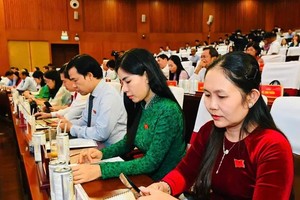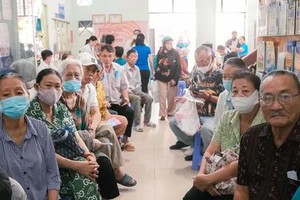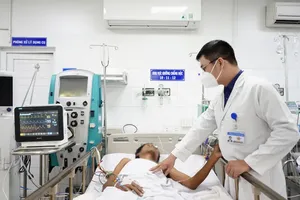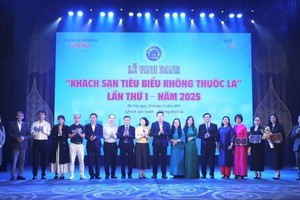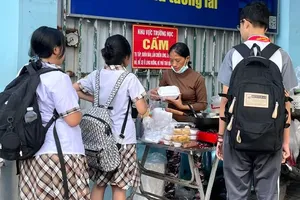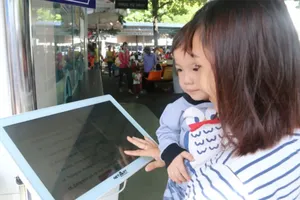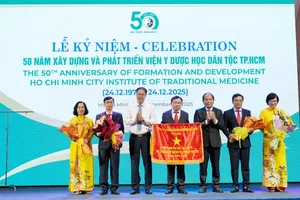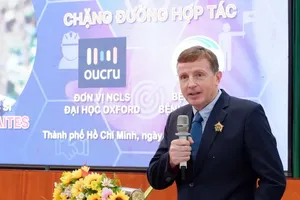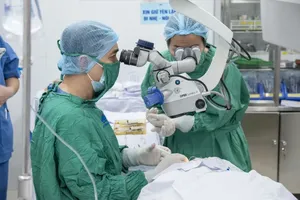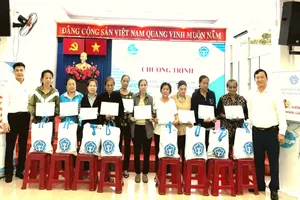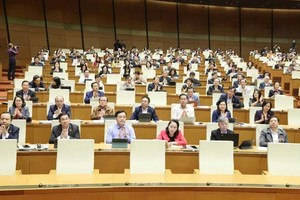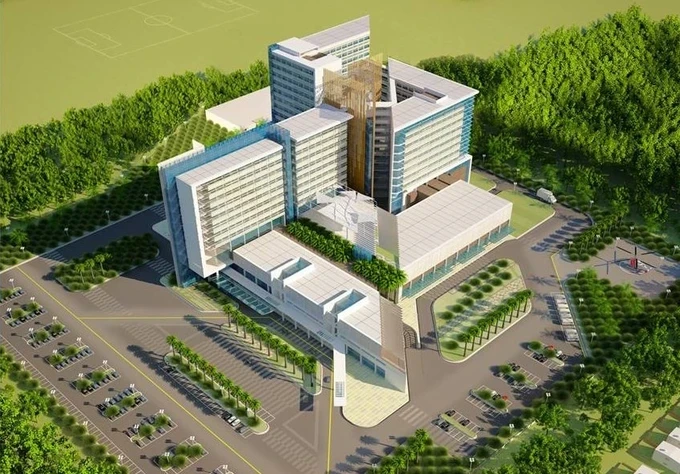
Director Tang Chi Thuong first reported on the ability of the current healthcare system in HCMC to meet the medical and treatment needs of local residents. Thanks to the close attention and insightful guidance of city leaders, manifested in specific resolutions and policies tailored for the healthcare sector, coupled with the unwavering efforts of all staff, the city's healthcare system has been steadily strengthened and comprehensively developed. This spans from preventive medicine and primary care to specialized, advanced medical services.
Numerous new facilities have been built, and existing general and specialized hospitals and medical centers have been renovated and upgraded, all contributing to effective service delivery. Tan Kien Commune in Binh Chanh District, for example, now boasts new medical facilities and modern infrastructure, including the City Children’s Hospital, Blood Transfusion and Hematology Hospital, and the soon-to-be-constructed 115 Emergency Center and Trauma Hospital.
Furthermore, the modern Pham Ngoc Thach Medical University, slated for completion in 2025, will further solidify this developing medical hub. These advancements are gradually forming the nation's first comprehensive specialized medical cluster – a concentrated model of healthcare provision typically seen only in countries with highly developed healthcare systems.
Concurrently, numerous advanced and specialized medical techniques have been implemented by hospitals across HCMC, yielding positive results. Several of these techniques rival those offered in countries with highly advanced medical practices, making these hospitals destinations for medical professionals from the region and beyond seeking to learn and enhance their expertise.
Prestigious international organizations have recognized the exceptional standards of care demonstrated by city hospitals in areas such as stroke treatment, assisted reproductive technologies, interventions and surgery for congenital heart defects in children, and heart failure treatment.
The Director then stressed the main priorities of the healthcare sector in HCMC this year. It will concentrate on implementing strategic projects designed to comprehensively develop the city’s healthcare system.
Key among these are already-approved projects such as the project to develop the HCMC healthcare system into a regional healthcare hub for ASEAN until 2030 and beyond, the project to develop the HCMC Pharmaceutical Industry to 2030, with a vision to 2045, and various digital transformation programs within the healthcare sector.
In 2025, HCMC’s health sector will propose new projects to the municipal People’s Committee, addressing public health needs. These include comprehensive healthcare with solutions to boost birth rates, developing nursing resources, and standardizing school health services. These initiatives address current needs and build a foundation for HCMC to become an ASEAN healthcare leader.
Nine key activity areas have been outlined, comprising 50 specific activities, for effective implementation in 2025:
- organizational restructuring;
- improving the quality of human resources;
- enhancing disease prevention and control capabilities and developing community health services;
- developing a professional out-of-hospital emergency care network;
- developing specialized medical services;
- enhancing financial management capacity and hospital autonomy;
- conducting drug and medical equipment supply operations;
- performing digital transformation and improving the efficiency of administrative reform;
- carrying out inspection, examination, supervision, and prevention of corruption, negativity, and waste.
Answering the inquiry about special activities of the healthcare sector to celebrate significant events this year such as the 50th anniversary of the Liberation of the South and National Reunification, the 70th anniversary of Vietnam Physicians' Day, and the 50th anniversary of the HCMC Health Department, Director Tang Chi Thuong shared seven exemplary competitive programs, projects, and initiatives have been planned to mark these occasions.
These include the inauguration and effective operation of three hospitals in gateway areas (Thu Duc, Hoc Mon, and Cu Chi Regional General Hospitals). These are crucial healthcare projects that will raise the quality of healthcare for residents in these areas and surrounding localities.
In addition to the renovation and upgrading of 146 health clinics and the commencement of construction on phase 2 of the HCMC Center for Disease Control, along with numerous new construction and renovation projects for district hospitals and medical centers, the health sector will also begin construction of new facilities for the 115 Emergency Center, the Trauma Hospital, and the Test Standardization Center at the Tan Kien Specialized Medical Cluster in Binh Chanh District.
Further initiatives include the program to improve the health, stature, longevity, and quality of life of city dwellers; the Smart Health project; investment in the construction of the Tan Kien Specialized Medical Cluster; the project to develop HCMC’s out-of-hospital emergency care system in a professional direction; the project to develop the HCMC healthcare system into a regional healthcare hub for ASEAN; and the “City of Gratitude – comprehensive support for the Tra Vinh Province health sector” program.
Finally, the Director talked about feasible solutions to truly transform public healthcare. The health sector will continue effective and innovative practices, such as deploying AI-integrated X-ray and ECG technology at remote health stations; increasing the availability of medications at health stations; establishing satellite polyclinics of city hospitals at health stations in densely populated areas distant from district hospitals.
The sector also prioritizes developing a high-quality healthcare workforce, advocating for new medical personnel categories to improve local care. HCMC is strengthening international training partnerships, focusing on specialized techniques, and promoting R&D and advanced technology applications (AI, robotics, 3D printing). Continued investment in infrastructure, integrated electronic health records via VNeID, and expedited electronic medical records aim to enhance care quality and resource efficiency.
“In 2025, the HCMC health sector will continue to clearly define its priorities to contribute to the city’s and nation’s progress. In the immediate term, hospitals need to concentrate resources on developing what I call the ‘three-legged stool’: enhancing management capacity to enable hospitals to achieve sustainable financial autonomy; continuously developing specialized techniques; gradually closing the gap with countries with advanced healthcare systems and striving to achieve international standards for hospital quality and excellence in specialized techniques.”
Assoc Prof Tang Chi Thuong, PhD MD
